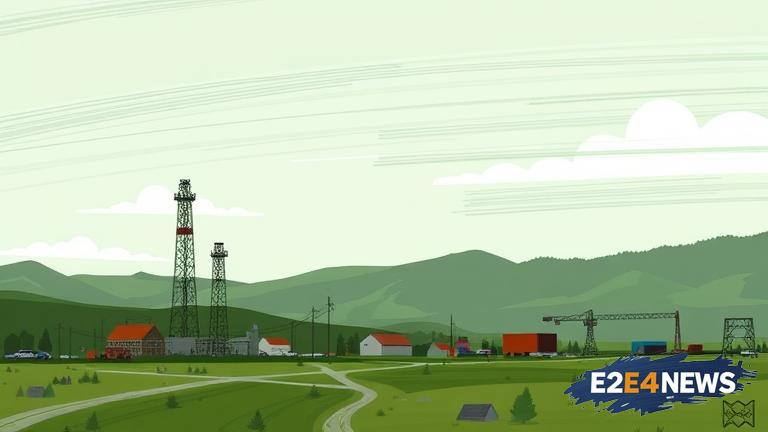The Appalachian region has long been touted as a hub for fracking, with the industry claiming it would bring a surge of new jobs to the area. However, a closer look at the numbers reveals a different story. While some jobs have been created, the majority of them are short-term and low-paying, with many workers being brought in from outside the region. This has left local communities feeling disappointed and concerned about the long-term effects of fracking on their environment and economy. The fracking industry has been accused of exaggerating the number of jobs it creates, with some estimates suggesting that the actual number is significantly lower than claimed. Furthermore, the jobs that are created are often in specialized fields, requiring specific skills and training that many local residents do not possess. This has led to a situation where outsiders are being brought in to fill these roles, rather than local workers being hired. The environmental impact of fracking is also a major concern, with many residents worried about the effects on their water supply and air quality. Despite these concerns, the industry continues to push forward with new projects, often with the support of local governments. However, some communities are fighting back, with protests and lawsuits aimed at halting the expansion of fracking in the region. The issue has become a contentious one, with many arguing that the economic benefits of fracking do not outweigh the environmental costs. As the debate continues, it remains to be seen whether the fracking industry will be able to deliver on its promises of job creation and economic growth. In the meantime, local communities will continue to bear the brunt of the industry’s activities, with many wondering if the benefits will ever materialize. The Appalachian region is not alone in its concerns, with other areas around the country also experiencing the negative effects of fracking. As the industry continues to expand, it is likely that these concerns will only grow. The need for sustainable and environmentally-friendly energy solutions has never been more pressing, and it remains to be seen whether the fracking industry will be able to adapt to these changing times. With the future of the region hanging in the balance, it is imperative that the industry is held accountable for its actions and that the concerns of local communities are heard. The economic and environmental implications of fracking are far-reaching, and it is crucial that a balanced approach is taken to ensure that the needs of all stakeholders are met. As the situation continues to unfold, one thing is certain – the people of Appalachia will be watching closely, eager to see if the promises of the fracking industry will finally be fulfilled. The region’s natural beauty and resources are a treasure that must be protected, and it is the responsibility of all parties involved to ensure that this is done. The clock is ticking, and it remains to be seen whether the fracking industry will be able to prove itself as a responsible and sustainable player in the region’s economy. Only time will tell if the jobs and economic growth promised by the industry will materialize, but for now, the people of Appalachia remain skeptical. The fight against fracking is far from over, and it will be interesting to see how the situation develops in the coming months and years. As the industry continues to push forward, it is likely that the debate will only intensify, with more and more people speaking out against the negative effects of fracking. The voice of the people will not be silenced, and it is imperative that their concerns are heard and addressed. The future of Appalachia is at stake, and it is crucial that the right decisions are made to ensure the long-term sustainability of the region. With the stakes so high, it is surprising that the industry has not done more to address the concerns of local communities. The lack of transparency and accountability has only added to the mistrust and skepticism, and it will take a lot of effort to rebuild the trust that has been lost. The road ahead will be long and difficult, but it is not impossible. With the right approach and a commitment to sustainability, it is possible for the fracking industry to coexist with the local communities and environment. However, this will require a fundamental shift in the way the industry operates, and a willingness to listen to and address the concerns of all stakeholders. The people of Appalachia are not against economic growth and development, but they are against the exploitation of their region and the destruction of their environment. It is time for the industry to take a step back and reevaluate its approach, and to work towards finding a solution that benefits everyone involved. The clock is ticking, and it is imperative that action is taken soon. The future of Appalachia depends on it.
